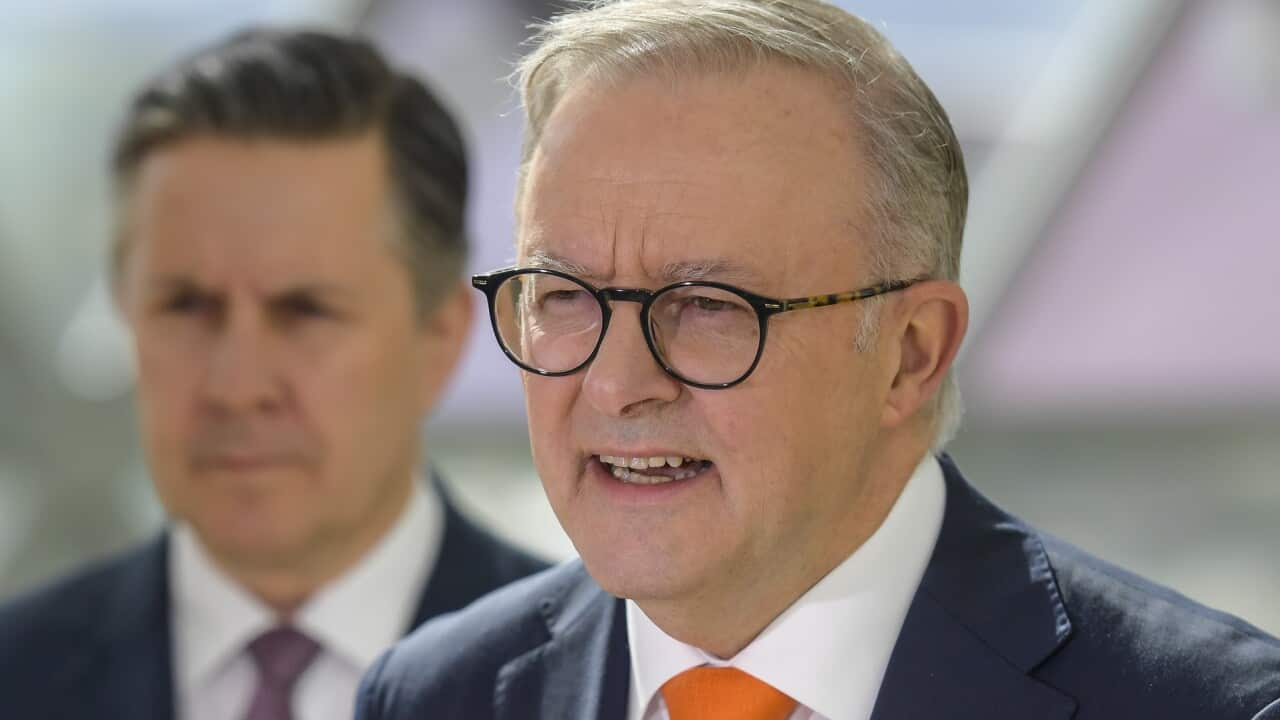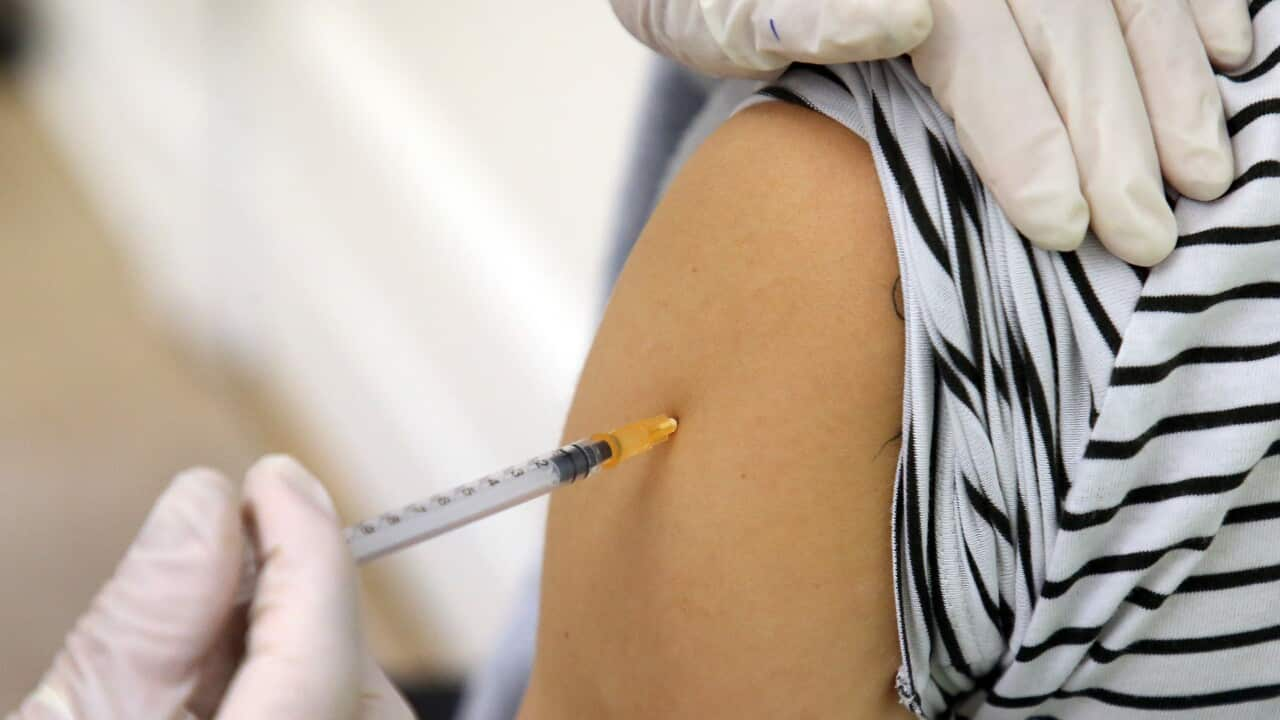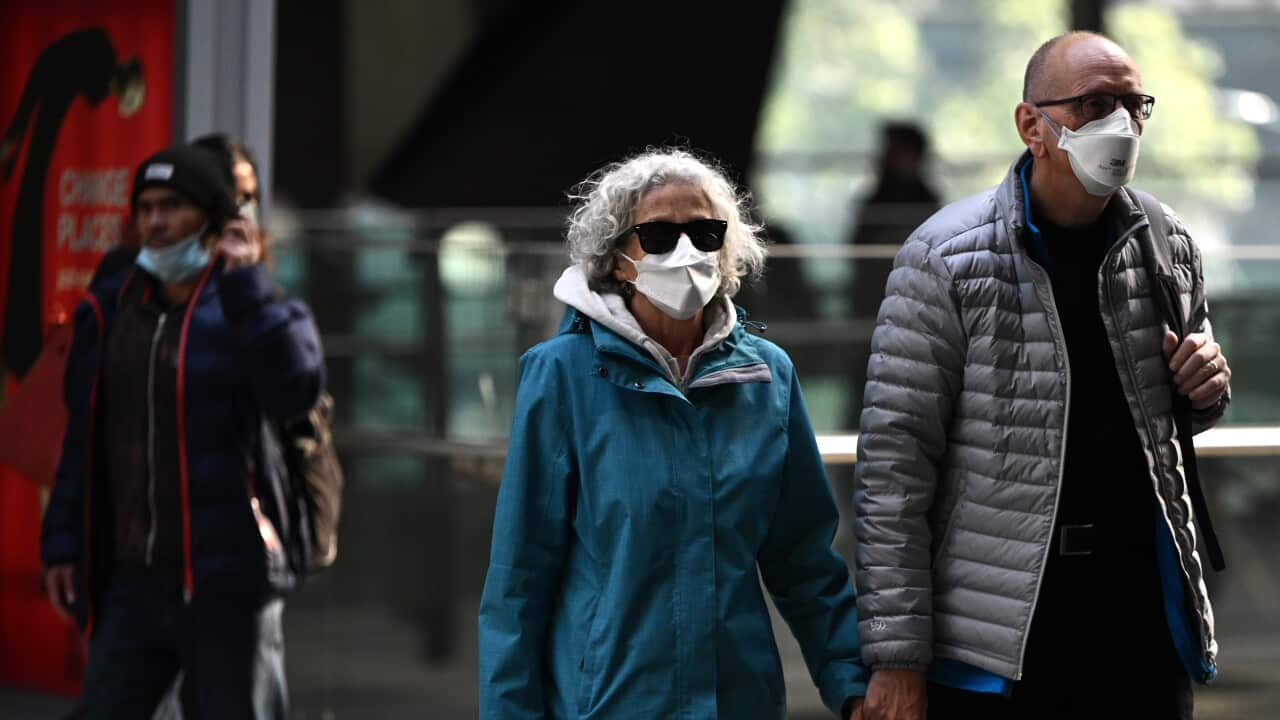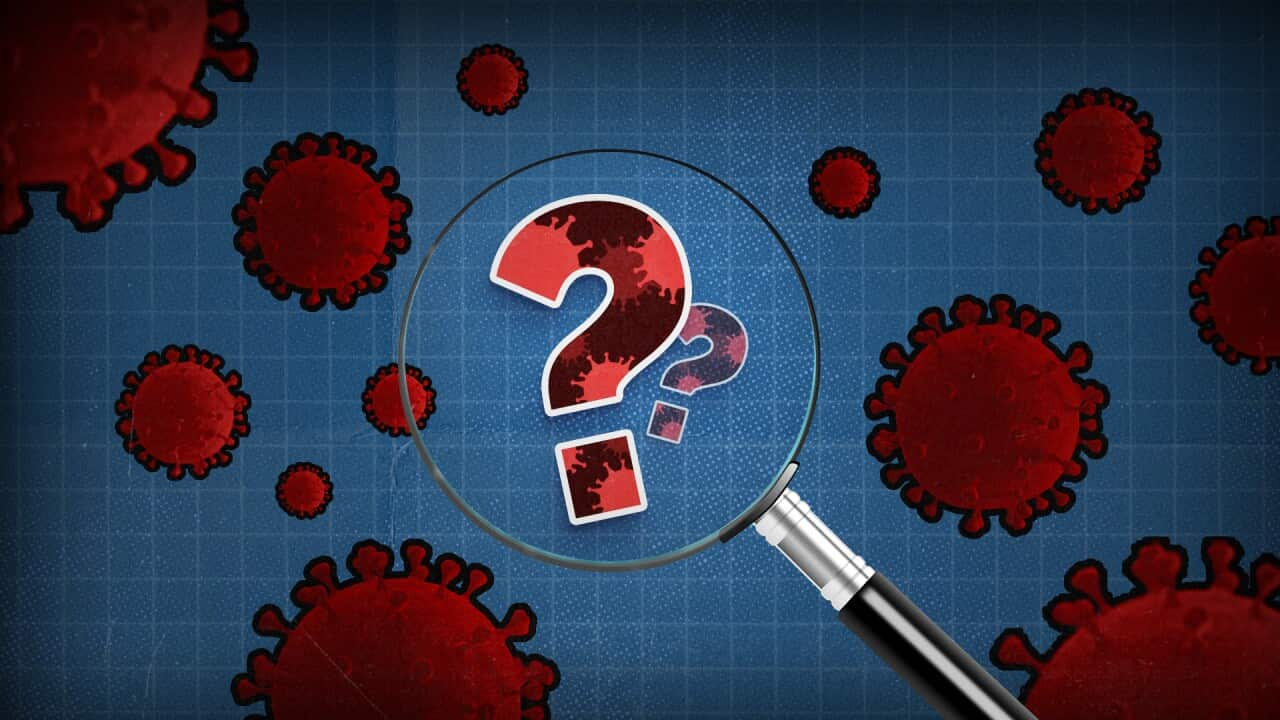KEY POINTS:
- Prime Minister Anthony Albanese has announced an inquiry into Australia's COVID-19 response.
- It will look into state and federal responses to the pandemic, but won't probe lockdown decisions.
- Opposition MPs have said the inquiry will "potentially [be] a witch-hunt on the previous Coalition government".
A wide-ranging inquiry into Australia's response to the will be launched, Prime Minister Anthony Albanese has confirmed.
The yearlong inquiry, to be headed by medical and economic experts, will examine the health, economic, and structural governance issues exposed by the virus.
Albanese has not revealed whether the inquiry will have the power to compel former or current state and territory leaders to give evidence, despite claims from the Opposition that it would be a "protection racket" for Labor governments if it didn't have such powers.
Here's what we know.
What will the COVID-19 inquiry examine?
The inquiry's terms of reference include health measures such as vaccinations, treatments and key medical supplies, mental health support, financial support, community support and international policies.
It will also consider the "global experience" and lessons learnt from other countries to improve response measures in the event of future global pandemics.
Speaking in Adelaide on Thursday, Albanese said the inquiry was needed to examine "what went right [and] what we could have done better" given the "enormous" loss of life brought on by the pandemic.
"Australians will never forget what the country went through in 2020 and 2021, in particular," he said.
"It was a time where Australians joined together; they made sacrifices to help each other, they sacrificed some of the normal activity that would go on. It was a very disruptive period in our lives, but we got through it."
The terms of reference say the following topics are under the inquiry's scope:
- Responsibilities of the commonwealth and state and territory governments, along with national cabinet.
- Financial support for individuals, as well as industry and businesses.
- Supports for people in lockdown, like mental health services.
- International policies, like border closures and vaccine procurement.
- Ways to better support particular communities, including Indigenous and culturally diverse people.
What will not be examined in the inquiry?
It will not probe actions taken "unilaterally" by states and territories, meaning it may be unable to explore the necessity or process behind lockdowns or school and border closures.
International programs and activities assisting foreign countries will also be outside the scope of the inquiry.
Albanese said the inquiry needed to be "forward-focused".
"We need a future made in Australia, we need to be more resilient, we need to be more prepared for this in the future, and that's precisely what this inquiry will be aimed at," he said.
Who will lead the COVID-19 inquiry?
The inquiry will be headed by retired senior public servant Robyn Kruk, epidemiologist Catherine Bennett, and health economist Angela Jackson and explore a range of factors, from Australia's vaccination preparedness to its support for citizens trapped overseas.
A taskforce within the Department of the Prime Minister and Cabinet will support the work of the inquiry.
Public consultation will be completed during the inquiry on the issues outlined in the terms of reference, which haven't been finalised yet.
The inquiry will consult with members of the public and other stakeholders, including experts and employees of federal, state and territory government agencies.
How has the Opposition reacted?
Opposition leader Peter Dutton criticised the government for not holding a royal commission and accused Albanese of breaking a promise to the Australian public.
"Australians heard the Prime Minister when he was Opposition leader clearly before the election when he said there needed to be an inquiry to get to the bottom of the decisions made during the course of COVID," Dutton said.
"It was a solemn promise the Prime Minister made to the Australian people and it's his latest and one of the most significant broken promises seen from the Prime Minister since his election."

It's not clear whether the inquriy will be able to compel state and territory leaders to give evidence. Source: AAP / Darren England
On Thursday, he justified his decision by saying that royal commissions took longer to be completed.
Dutton said a royal commission would put Australia in a better position ahead of any future pandemics.
"The Prime Minister owes it to the Australian people to have a proper understanding of what happened at a state and federal level in relation to COVID, the policies, the decisions that were being made," he said.
"If we don't learn the lessons of what happened during the course of COVID, good and bad, by every level of government, how do we expect to go into the next pandemic not understanding what had happened in the previous one?"
Opposition health spokeswoman Anne Ruston warned the inquiry would be a "protection racket" for Labor leaders if it did not have the power to call current and former state premiers as witnesses.
"[It will] potentially [be] a witch-hunt on the previous Coalition government," she said.
"Because so many decisions that impacted the government so significantly during the pandemic were the decisions of the states and territories.
"We are going to be very, very critical if it does not have the power to compel states and territories to participate in this inquiry in a really significant way."
What have health experts said about the COVID-19 inquiry?
Public Health Association of Australia chief executive Terry Slevin said the inquiry should not be used for partisan point-scoring.
“It should not be a legalistic nor political mechanism to find and attribute blame and seek retribution,” he said.
“The pandemic had a significant impact on every person in Australia.”
Slevin hoped it would also provide advice on the “scope, resources, and roles” that can be provided by a centre for disease control during future pandemics.
Australia is the only Organisation for Economic Co-operation and Development country without a centre for disease control.
“It will need a clear scope, proper governance to ensure it is expert and independent and it will need proper resources to tackle the significant challenge,” he said.
Associate Professor Hassan Vally, an epidemiologist from the School of Health and Social Development at Deakin University, said the review's findings would be an important resource to inform priorities for a new centre for disease control.
"It is important that we learn every single lesson that we can to ensure that we are both prepared for the next pandemic and better equipped for dealing with future emerging infectious disease threats," he said.
"Whilst many of the lessons appear to be clear, we need a national inquiry to identify all of the areas where we need to improve."
Why do we need a COVID-19 inquiry?
"We're vulnerable to shocks like a pandemic, and there could be other shocks as well, where some of [their] recommendations could be relevant," Albanese said.
Australia managed to keep COVID-19 infections low using strict lockdowns and social distancing requirements in some areas, before a case surge in late 2021 driven by the highly infectious Omicron strain.
Health Minister Mark Butler said the inquiry could only begin after the “worst period of the pandemic had receded”, and the impact of COVID-19 was at its lowest since early 2020.
“We wouldn't start an inquiry while our health systems [and] our governments were still focused on pandemic management,” he said.
“We are certain that now is the time to start this inquiry … [so that] when the next pandemic strikes, which it will according to all of the health advice, we do better in those areas.”
Butler also said the inquiry would help Australia build a national centre for disease control, which Labor also promised before the next election.














